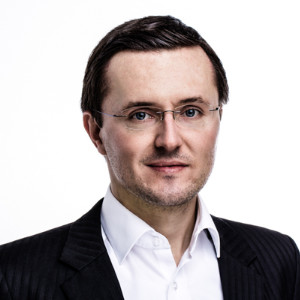Hi PL Community,
I just passed my first McKinsey round. The interviewer called me with some feedback regarding the debt of framework and also a comment on my quant analysis.
Are there any specific tips or things to focus on for the second round?
Cheers and good luck for everyone!
McKinsey 2nd Round - Experienced Hire


Hi Anonymous,
First of all, congratulations to your great performance in first-round interviews!
Apart from technicalities who is interviewing you (which are more senior folks, usually on partner/director level for McKinsey), the main idea is simple. There are 3 major differences to consider.
1) Ensuring that any short-comings from previous rounds are a non-issue
Whatever was not 100% matching the expectation level of McKinsey in the first round interviews will be evaluated in detail again in final round interviews. Final round interviewers are normally also briefed about previous interviews' performance so that they can cover this aspect again. This is to ensure that you are really a good fit from the firm's perspective, and any short-coming from previous interviews was not a systematic issue (makes sense, doesn't it?).
So for whatever was not going 100% perfect in your previous interviews you need to make absolutely sure to improve on that - chances are high you will need to show that in your final rounds.
In your specific case, focus in your further prep as much as you can on structuring your answers - both for the structuring of the general case, but also of more detailed questions along the case (and bear in mind the McKinsey is the most picky firm in regard to structuring, having coined the infamous MECE term). On top of that, practice your quant/math skills - specific advice you will find in PrepLounge Q&A forum.
2) Everything can happen - mostly non-standardized scheme of cases/discussion
Apart from that - well, the firm's owners are interviewing you. So apart from ensuring any shortcoming from previous interviews are ok, they can do pretty much whatever they want and what makes sense to them. And they usually use non-standard cases which you are used to from practice or even first round interviews - sometimes it's more like discussing some challenging projects/aspect they are dealing with at the moment.
So also be prepared that everything can happen and that most likely it won't follow the standardized scheme from previous interviews. Stay mentally flexible, be adaptive and mentally agile to switch gears any time during the discussion.
3) Increased importance of personal fit (McKinsey PEI)
In addition, personal fit is usually getting more important in final round interviews than before, specifically for experienced hires. I wrote an extensive ebook on how to prepare and polish it, since basically all candidates get it wrong in the first place, even though it contributes around 50% to your overall evaluation - of course we can fine-tune and polish both your PEI and case skills in a coaching session, feel free to drop me a message if you are interested.
Hope that helps - if so, please be so kind and give it a thumbs-up with the green upvote button below!
Robert

Hey there,
Congrats!
The case article specifically answers what is meant by depth and how to perform well in the quant section:
1. Framework
Another common misconception between McKinsey and other interviews relates to the structuring part of the case. The framework derived for McKinsey vs. a framework created for other consulting firms is usually quite different.
At the core, McKinsey wants to see creative ideas communicated in a structured manner, the more exhaustive the better.
Your goal should be to come up with a tailored and creative answer that fits the question. The framework should - broadly speaking - follow these three characteristics:
- broad
- deep
- insightful / creative
At the lowest level of your structure, you need to showcase concrete ideas, qualify your answer with practical examples and more details.
While for BCG, Bain, etc. you need to present your framework relatively swiftly within 1-3 minutes, to then dive deeper into the buckets where you think the solution of the case is buried, for McKinsey, there is no single solution (as discussed above).
In a McKinsey interview, you can take up to 5-8 minutes to present your structure, your qualification, and hypotheses. This is due to the interviewer-led format that McKinsey employs. The interviewer will only ask 'what else' if you
- haven't gone broad or deep enough
- did not explain your ideas well enough for them to stand out (again, you have time here)
The firm wants to see exhaustive and creative approaches to specific problems, which more often than not do not fit into the classic case frameworks that were en vogue 10 years ago...
Again, this only applies if everything you say
- adds value to the problem analysis
- is MECE
- is well qualified
- includes a detailed discussion of your hypotheses at the end
The difference in format and way of answering a question is the reason why I recommend preparing very differently for McKinsey interviews vs. other consultancies.
2. Math
As for math questions, usually, there are answers which are objectively correct (not always 100% the same since some candidates simplify or round differently – which is ok), and others that are wrong, due to issues with the
- calculation approach
- calculation itself
Make sure to take plenty of time to think about your approach before communicating it and then taking enough time to calculate.
The main mistake I have seen with 100s of McKinsey candidates is that they don't take enough time in this section and come up with faulty approaches or inaccurate calculations.
3. Differences in final round vs. first round
The differences between a McKinsey first and second round are usually minuscule and often overstated by people who have no experience with the McKinsey hiring process (be careful about some tips in this thread). There are many more similarities between the two than there are differences since the interviewer guidelines are the same, as are the format and the evaluation metrics.
Second-round interviews are not always given by ‘’owners of the firm''. Also, I want to highlight that the PEI is exactly of the same importance in both rounds…
What are the main differences?
1. There can be a focus on areas where you performed worse in your first round, thereby leaving out other parts of the case completely. If you felt weak in certain areas or received specific feedback, put extra effort to work on those.
2. The interviews could (not have) be more freestyle (e.g., interviewers giving you less time for brainstorming, etc.)
Have a look at these two articles below if you want to learn more or reach out for a session. I have specialized in McKinsey interviews as you can see from the success stories in my profile.
Case: https://www.preplounge.com/en/mckinsey-interview)
PEI: https://www.preplounge.com/en/mckinsey-pei)
Cheers,
Florian

Hi there,
Well done on passing the 1st round!
The final round has the same structure as the first (fit + case+ your questions); however in a final round, partners may:
- Spend more time on the PEI and your alignment with the company.
- Pay more attention to your communication (eg how you react to challenging questions).
- Not use a "standard" case. In some countries for example you may have market sizing questions as well. Having said that, in most offices cases remain standard in finals as well.
To prepare, you can work on the following:
- Review in detail your PEI stories. Be sure to check them with experienced candidates or consultants and to have at least one backup for each dimension.
- Get feedback on your communication (reaction under pressure, how to gain time when you do not have a structure ready, connect with the interviewer, etc). This is something you can do almost exclusively during mocks.
- Prepare cases as you did for the first round. Given you got feedback on structuring and math, you can focus more on those areas.
Bonus point: partners often give cases related to the industry they cover. If you know the sectors they specialize in, it is a good idea to review those industries / read their research papers on that / do cases related to that sector.
Best,
Francesco

Congratulations on having done so well. Generally speaking expect the second interview to be more challenging, but do not stress out about this. It is a great sign that he gives you feedback, they are interested in helping you do well. In case you are applying to a specific practice they might test that knowledge. Try to see if you can advance your skills in the meantime to show even a higher level than what you showed before. So that they see you have taken feedback into account. Also going forward when someone calls you try to use these opportunities to connect on a personal level, too, if it is appropriate and feasible. Take every interaction as a chance to shine and to show you are also a great cultural fit.

Hi,
congrats on passing the 1st round!
There is not much difference in the 2nd round in the format, but you will likely get a different types of business cases. I would recommend practicing yet extensively, eventually, to get a coach to practice the type of cases you are less comfortable or/and getting a coach to explain the structured way to approach problems (hypothesis-driven approach).
To boost your confidence, your chances to pass are the highest in the 2nd round (of all recruiting steps) :-)
I am a top BCG trainer and experienced hire myself, if you would like to reach out, feel free to connect with me.
Good luck
Lucie
Was this answer helpful?

Hi there,
Congrats on passing the first round!
There's nothing “specific” that you need to focus on. You should continue to prepare for everything and be ready to be adaptable to whatever happens.
Of course, focus on any weak areas/feedback from the first round and do try to understand your interviewers' backgrounds, but, apart from that, nothing changes (in that you need to expect everything)!

Hey there,
Some very good answers from other experts already so let me give you a hint with regards to something important not yet covered:
As you progress through your interviews, the interviewers get more senior. In the final round at McKinsey, you will generally be interviewed by Associate Partners, Partners, and even Senior Partners.
Why is this important? The more senior the interviewer, the more likely they are to divert from the rigid protocol and shoot from the hip (they shouldn't, but they can and they do). In other words, expect the unexpected and don't be thrown off by it!
This could manifest itself through:
- Bizarre cases (I had one myself, feel free to reach out)
- Non-standard PEI questions
- Connecting through Zoom for the interview while driving (this happened!)
- Etc.
Hope this helps a bit to prepare! Best of luck!













